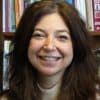A Maryknoll Sister and her brother, a Maryknoll priest, celebrate lives of service
There are lessons that money cannot buy and schools often cannot teach. Maryknoll Sister Elizabeth Erbland and her brother Maryknoll Father Philip Erbland are living testaments to the powerful lessons learned from humble beginnings.
The Erblands were a working-class family of 11 children, nine of whom survived childhood; theirs is an American tale of sacrifice and survival.
Both Maryknoll siblings were born in the 1930s during the Great Depression in the village of Fairport, N.Y. Their father had moved his young family there to take a factory job making tin cans at the American Can Company.
Like many struggling families of that time, they received government aid and went once a week to the local commissary to receive food. Elizabeth, born two years after Philip, recalls being 10 years old and cutting cabbage for a local farmer. By age 14, she and all her siblings had steady jobs on local farms or at the grocery store, and went straight from school to work daily.

Their humble beginnings and Christian foundation led Elizabeth and Philip Erbland to choose lives of service as Maryknoll missioners. (Maryknoll Mission Archives photos)
Despite difficult years, these siblings remember most the example of charity and integrity of their parents. Philip recalls finding a wallet with money and a phone number inside. His father called the number, and together with Philip, returned the money.
Their mom always found a way to give back from the little they had, often giving flowers from her garden. “We lived north of the train tracks,” recalls Elizabeth, “and occasionally a hobo would find his way to our back door. Instead of chasing him off, my mom would stop what she was doing to fix him breakfast.”
“They were a living example of what it means to be Christian,” says Elizabeth of her parents. “Neither one of them graduated high school but they were both so bright.” Their family went to 7 a.m. Mass together every Sunday.
Each child learned to play an instrument and all nine went on to illustrious careers. Today only three Erbland siblings remain: Elizabeth, Philip and Thomas, who turns 90 this year.
“Young people today have so many options,” says Father Erbland, “but when I started, there was no Peace Corps, there was just the Church.” He’d earned an engineering degree and was working and active in his church, when his parish priest suggested Philip consider the priesthood. Philip had heard of Maryknoll through a missioner’s talk at his church. Later as he was discerning his vocation, a friend gave him a copy of Maryknoll magazine.

Their humble beginnings and Christian foundation led Elizabeth and Philip Erbland to choose lives of service as Maryknoll missioners. (Maryknoll Mission Archives photos)
Philip entered Maryknoll in 1961 and was ordained in 1966. He was sent to Peru, where he served for 40 years. In the altiplano, 12,500 feet above sea level, he served primarily indigenous Aymara-speaking people in the Juli Prelature. It was a huge expanse of 40 to 50 villages and scattered homes throughout the harsh semi-arid region.
Father Erbland worked with health promoters and Radio Onda Azul, a Maryknoll radio station that taught basic literacy classes. Since the people had nothing to read, he began El Amanecer (The Awakening), a one-page mimeographed publication on current events, and showed educational films on a 16-millimeter movie projector he procured.
He later worked in the cities of Arequipa and Tacna, and in the capital of Lima, where he offered Mass and counsel in a high-security women’s prison, and visited group homes for 300 children.
In 2015, Father Erbland suffered a stroke that affected his eyesight and caused neuropathy in his feet, making it unbearable for him to stand. He found a way to continue serving, from a sitting position—hearing confessions in Spanish at Assumption Parish in Peekskill, N.Y.
“He’s not just a wonderful brother; he’s a very good man,” says Sister Erbland of her brother.
Her own desire for service grew out of her interest in special education, in which she earned a degree and taught for six years before entering the Maryknoll Sisters in 1963. During the Vietnam War she was assigned to the Philippines, teaching at Maryknoll High School in Panabo. She recalls how one year, she took a teaching job at Clark Air Force Base to earn a salary to raise funds to keep the Maryknoll school open and pay the teachers during a critical time.This school continues today.
She has served near the U.S.-Mexico border teaching special education at a public high school; working with ARISE, a program that empowers women in poor communities along the border; and teaching English in a border community known as Las Milpas. She has also taught English to Eastern European refugees through Catholic Charities in North Carolina.
“You can be a missioner in any place,” says Sister Erbland. Today she serves at a local ecumenical food pantry offering food and hope to struggling families of Ossining and Briarcliff Manor, N.Y. The food pantry, in operation since 1988 at Trinity Episcopal Church in Ossining, annually provides over $300,000 worth of food to those in need, including fresh produce from Maryknoll’s Pachamama Farm.
At Trinity, people can pick and choose the food items they want for their family, explains Sister Erbland. Helping struggling parents feed their families while preserving their dignity is dear to her heart. She’s never forgotten the lessons of growing up poor and lean but loved.
Now in their 80s, these sibling missioners have no regrets nor any intentions to stop. Father Erbland, who will celebrate his Golden Jubilee as a Maryknoll priest this June, says, “I would encourage people to always think bigger than yourselves. That’s what love is all about.”
Featured Image: Now in their 80s, Maryknoll Father Philip Erbland and Maryknoll Sister Elizabeth Erbland continue to serve those in need. (D. Mastrogiulio/U.S.)

